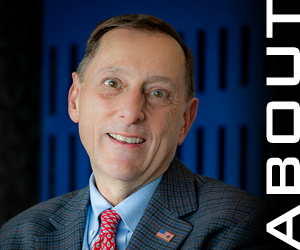Capitol Report | Fall 2023
Under Pressure: State Government Agencies Navigate Audit Difficulties
As units of local government around the state eagerly search for CPAs and firms to perform their audits, efforts are underway to mitigate these challenges.

Marty Green, Esq.
Senior VP and Legislative Counsel, Illinois CPA Society
The Latest on Advocacy and Legislation
One of the critical issues facing the profession right now that’s come to the forefront in state government is the availability of CPAs to perform audits for compliance filings. The ongoing pipeline issues, demographic shifts as more CPAs retire, and an increase of CPA firms opting out of audit work altogether have significantly limited the pool of available auditors, leaving state agencies, units of local government, charities, and grant recipients scrambling to meet compliance requirements. This perfect storm is even more exasperated by Illinois’ large number of local government units (more than 7,000) and state funds.
Earlier this spring, I was contacted by the Local Government Division of the Illinois Comptroller’s Office and the Illinois Municipal League to discuss this issue. Specifically, the difficulties downstate units of local government are having when trying to find a CPA or CPA firm to perform their audits. While it’s preferable to have a local CPA or CPA firm perform audits for these entities, it’s not required. I explained this to a southern Illinois municipality I was working with on its request for proposal (RFP). Ultimately, a firm from the Chicagoland area responded to their RFP and was awarded the audit work. This particular firm is examining its audit practices with on-site fieldwork to see what work can be performed remotely to eliminate lengthy or unnecessary travel to the municipality.
As part of these discussions, the Illinois CPA Society (ICPAS) surveyed CPAs and firms to gauge their capacity for performing government audits and their level of interest in having their name posted as a resource for the comptroller’s office and municipal league to refer units of local government to them for help.
So far, we’ve compiled an ongoing roster of CPAs and CPA firms who are available to do this work, which is in addition to our “Find a CPA” directory on the ICPAS website.
In addition to the conversations with the comptroller’s office and municipal league, ICPAS has had conversations with other government agencies on this issue, including the Governor’s Office of Management and Budget, the Illinois State Board of Elections, and the Office of the Illinois Attorney General. Notably, Illinois Auditor General Frank J. Mautino is also feeling the pressures brought on by the decreased auditor pool, as fewer firms are responding to RFPs to perform state government audits. Similar to CPA firms, Mautino has also observed intense competition when trying to employ CPAs in his office to perform compliance audits and other oversight responsibilities.
Additionally, ICPAS President and CEO Geoffrey Brown, CAE, has recently sent an informational letter to constitutional officers and departments to facilitate a larger discussion and focus on this issue. The letter serves four key purposes:
- To formally provide information on the nationwide issue.
- To outline the challenges of completing the number of required audits in a timely fashion.
- To share ICPAS’ views and suggested remedial actions.
- To encourage annual audit alternatives used by state government entities for regulatory oversight.
Of course, central to our discussions with these officials has been the challenge for CPAs and their firms to master the complexity and evolution of audit standards—a key to providing these levels of audit services.
In addition to Brown’s letter, ICPAS’ Not-for-Profit Organization Committee drafted an extensive informational paper with suggestions to improve administrative processing of compliance filings and other substantive alternatives to annual audit filings. Also, during this past spring legislative session, ICPAS, along with other stakeholders, was successful in increasing the decades-old charitable audit threshold from $300,000 to $500,000, while charities at the $300,000 level will be required to submit financial statement reviews.
While these initial responses and actions have provided some mitigation to the larger issue, substantive information will hopefully facilitate consideration of alternatives to some agencies’ overreliance on the audit as a perfunctory compliance tool.
Overall, it would be counterintuitive to push back on the high demand for professional services of this nature. As a profession, it’s important that we continue to maintain the highest levels of audit standards. Of course, the challenge for CPAs is to maintain ownership of the audit franchise and meet the regulatory demands.
Related Content: